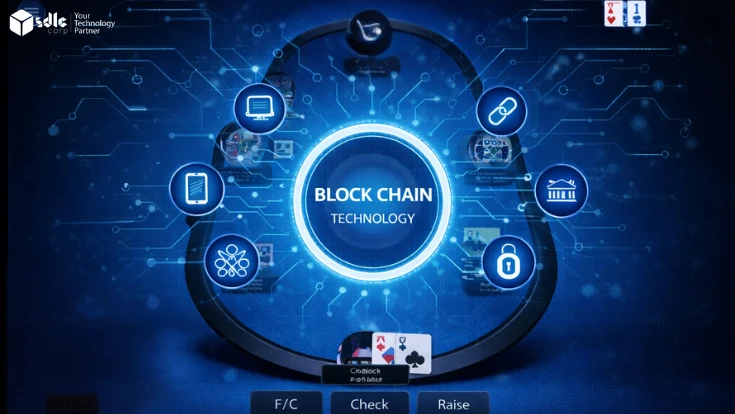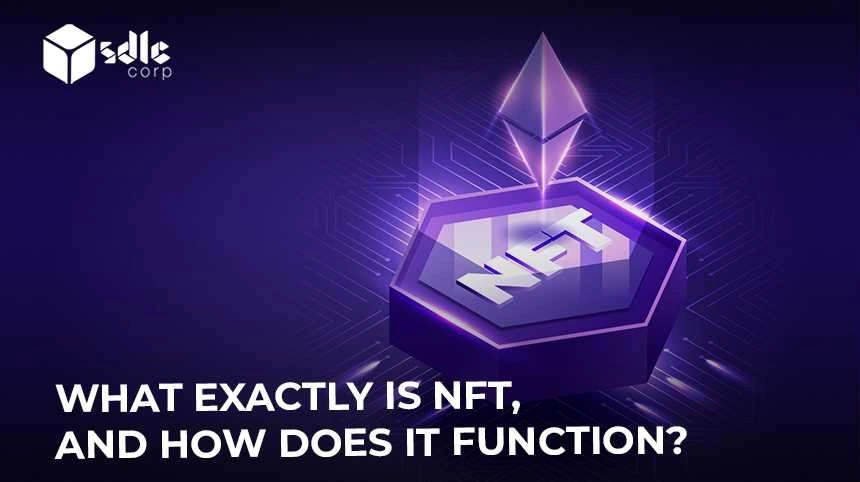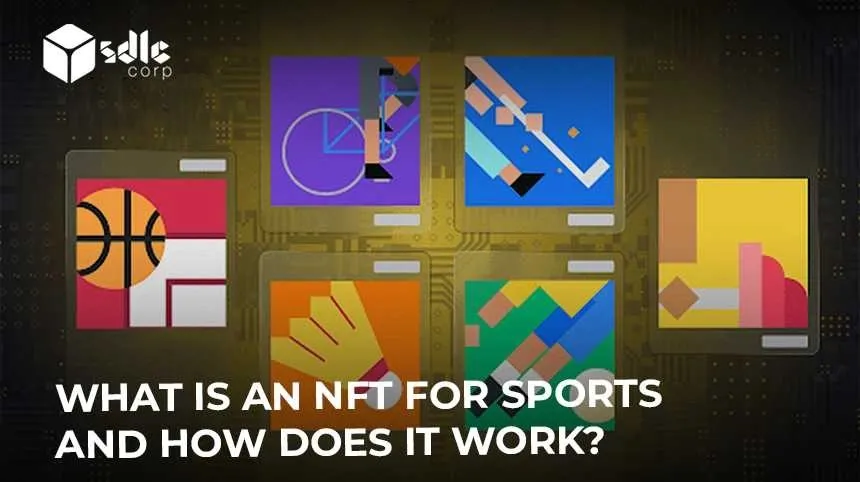Blockchain Technology and its Possible Solutions for the Retail Industry
Blockchain and NFTs in Retail Industry: Retail companies have the ability to enjoy a significant number of potential advantages from the use of blockchain technology.
How may blockchain technology benefit retail businesses? Let’s find out.
Before the epidemic struck, the retail business was experiencing unprecedented growth.
But, even though there are more and more online shopping centers, most stores still make most of their money from “brick-and-mortar” stores.
However, as soon as the pandemic began to spread, business owners were faced with considerable challenges.
Some of these challenges were keeping the supply chain going, selling items, running storefronts, and making sure that all customers and workers were safe.
If the retail sector had adopted blockchain technology from the outset, none of this would have happened.
Blockchain’s dependability, durability, and top-notch monitoring and control strategies could be the last piece of digitization that retail businesses have been missing.
That’s why it’s about time the retail industry took blockchain seriously and began incorporating it into established infrastructures.
Because of this, we can explain in detail the benefits of blockchain technology for the retail industry and the issues it solves.
Blockchain in the Retail Industry: Use Cases and Applications
Changing Consumer Expectations
There are a lot of moving parts in the retail industry, and one of them is the expectation of customers.
It is difficult to keep up with the ever-evolving standards of consumers. Customer’s choices are influenced by too many factors, too quickly.
The vast majority of buyers could be impressed by a product now, but their opinion can change tomorrow.
Things like the time of year, special occasions, and character traits should be taken into account.
Shops need to make sense of this mountain of information. It’s no longer possible to make reliable predictions.
Revolutionize Retail: Explore Blockchain and NFTs Now!

Strengthening Customer Loyalty
Customer loyalty may be increased by providing first-rate service.
Actually, many stores stop carrying antique items because they believe their customers can be easily replaced.
Managing clients may be challenging, and we get that. Don’t let go too soon; it might come back to haunt you.
Keeping this view in mind will make it more challenging to grow your business.
It’s not enough to make your existing customers feel special with promotions, exclusive offers, or one-of-a-kind discounts since most companies now lack specialized items.
Internal Miscommunication
ideal for large-scale, multi-divisional retail. Separating a huge region is difficult and expensive.
This variety may hinder staff communication.
If departments don’t communicate properly, business disruptions might affect consumer satisfaction. Automation of connections is the only solution. IT help is needed.
Increase in Retail Prices
Consumers should pay more for necessities these days. This leaves less money for indulgences.
Customers are turned off by fluctuating and exorbitant pricing. To encourage people to buy, retailers provide discounts and other incentives.
Retailers are struggling with increased prices. But why? Inefficient automation and planning may increase production costs, which affect retail pricing.
Maintaining a rate above what purchasers expect is not best for growth.
NFT in Retail
Third-quarter NFT trading volume was $10.67 billion, up 704% from the second quarter and 38,060% from the same time last year.
These findings demonstrate NFTs are gaining popularity.
Some NFTs may find purchases from external merchants more tailored than in-store purchases.
If you bought a non-fungible token (NFT) from an independent seller, you would get something unique since no two NFTs from the same provider would have the same price (it is fungible).
Both the public and business sectors value tangible things.
As more companies make and sell NFTs, their market grows, which creates new excitement and interest in logos.
In a world where everything is digital, virtual real estate is flourishing (How will Blockchain and NFTs Change Real Estate Industry), and buying clothes for one’s virtual avatar is a fad.
Organizations that don’t adapt to digital environments risk losing out on important customer interactions.
Shop Smarter: Embrace Blockchain and NFTs for a Brighter Retail Future!

NFT Use Cases in Retail and the Application of NFTs to Retail Brands and Stores
The scope of NFTs extends well beyond just immaterial commodities. Soon, it might be possible to tokenize real goods and services.
This would let retailers cut out middlemen like Amazon and Alibaba, lower transaction fees, and protect themselves from legal disputes caused by online shopping.
For example, a swimsuit made by a fashion brand could be owned by a token that the brand could then sell to any buyer or reseller who was interested.
It is possible that the money will be escrowed to safeguard both contributions and lessen the risk for the other party.
The buyer may either use the token to buy the bikini or resell it.
Startups like Boson Protocol and Splyt Center are already using NFT-based decentralized infrastructure for commerce.
There are characteristics specific to this nft use cases in retail infrastructures, such as physical product verification.
NFTs are Being used by Retailers.
When apparel retailer The Fabricant sold a digital garment for £7,500 in 2019, it made history as the first business to utilize NFTs for merchants.
Many businesses have used NFTs since then to broaden brand recognition or test out new revenue streams.
The Fashion Business Index found that seventeen percent of the industry’s fashion brands had worked with non-traditional retailers in the past.
During 2016, Adidas expanded into the realm of visual art for the first time.
With almost 30,000 NFTs available in their first collection, Into the Metaverse, customers get early access to authentic items that will be released in the future.
Within hours, all NFTs were purchased, and Adidas made around $22 million.
Given that their first collection seems to have done well, the company has said that they plan to release more NFTs soon, which could lead to more sales.
Explore our other insights!

Role of Blockchain in Poker Game
Blockchain in Poker Game depends on trust around fairness, balances, and payouts. Therefore, players must believe cards are

What Exactly is NFT, And How Does It Function?
Imagine purchasing a digital painting on the internet at a reasonable price and receiving a unique digital token

What is an NFT for Sports and How Does It Work?
The emergence of Non-Fungible Tokens (NFTs) has revolutionized several industries, with the sports sector being one of the
NFTs: retail revolution?
FAQ’s
1. How are NFTs used in retail?
Buy NFTs to build a virtual branch of your brick-and-mortar shop. In-game apparel and accessories may be sold as NFTs, and players will proudly wear them while playing. If you issue NFTs, you may invite holders to private events. And that’s one way to use NFT in retail.
2. What does NFT mean in retail?
The NFT sold by a private dealer is a great digital asset (it’s non-fungible), but the same thing sold by a big box shop, either in person or online, isn’t necessarily a great bargain since it doesn’t have an “entry price” (it is fungible).
3. How can brands benefit from NFT?
Structures like Trove and Recurate make secondary buying and selling part of a branded retail experience, and an NFT-based digital mark of authenticity for a physical thing makes it easier for it to be accepted as real in peer-to-peer resale.
4. Is blockchain technology being put to use in retail?
Retail business data security in international supplier networks has improved. To elaborate, blockchain ensures the highest level of data security for multinational companies’ international supply networks. Also, the fact that blockchain technology can streamline supply chains gives businesses a great chance to build their credibility.
Explore our other insights!

Role of Blockchain in Poker Game
Blockchain in Poker Game depends on trust around fairness, balances, and payouts. Therefore, players must believe cards are

What Exactly is NFT, And How Does It Function?
Imagine purchasing a digital painting on the internet at a reasonable price and receiving a unique digital token

What is an NFT for Sports and How Does It Work?
The emergence of Non-Fungible Tokens (NFTs) has revolutionized several industries, with the sports sector being one of the



